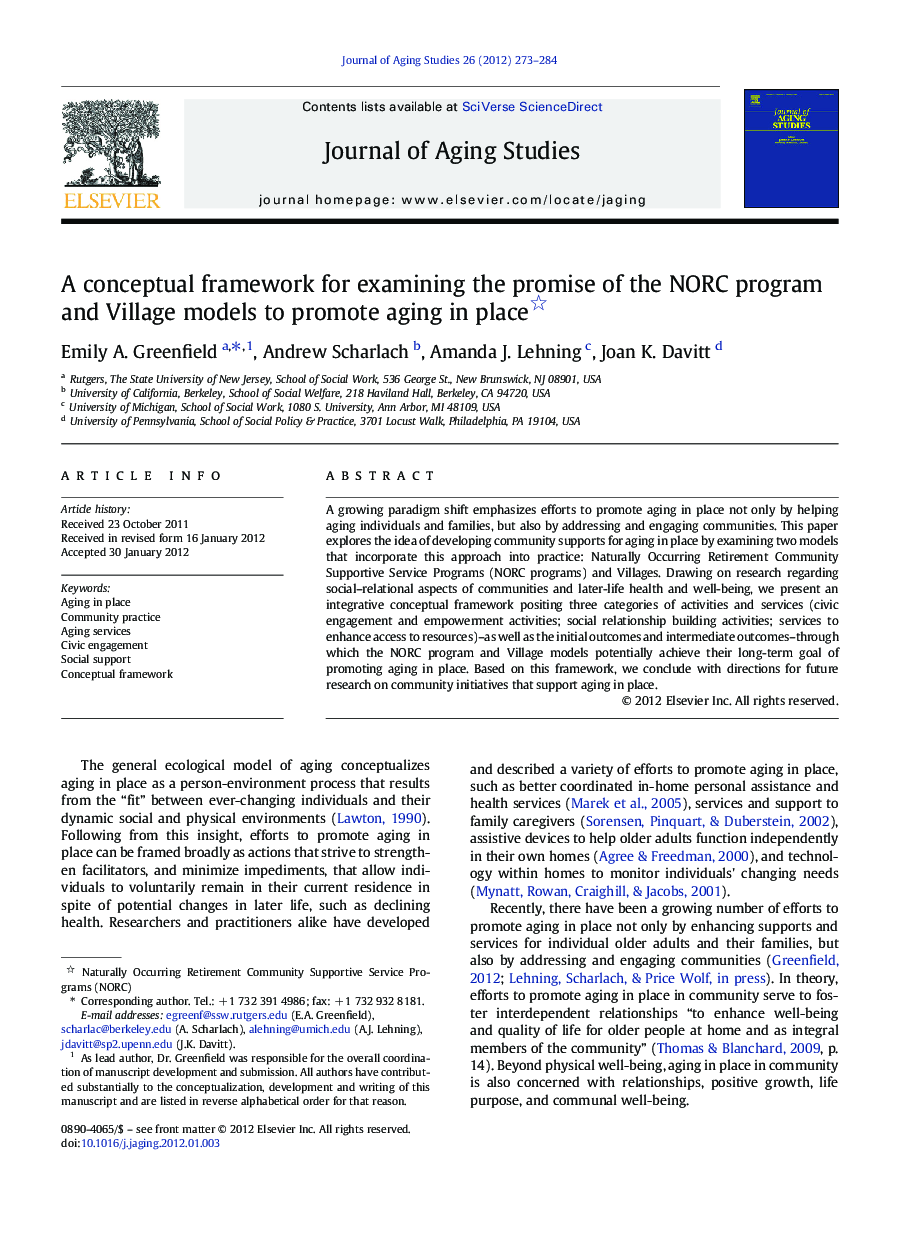| کد مقاله | کد نشریه | سال انتشار | مقاله انگلیسی | نسخه تمام متن |
|---|---|---|---|---|
| 1081877 | 950785 | 2012 | 12 صفحه PDF | دانلود رایگان |
A growing paradigm shift emphasizes efforts to promote aging in place not only by helping aging individuals and families, but also by addressing and engaging communities. This paper explores the idea of developing community supports for aging in place by examining two models that incorporate this approach into practice: Naturally Occurring Retirement Community Supportive Service Programs (NORC programs) and Villages. Drawing on research regarding social–relational aspects of communities and later-life health and well-being, we present an integrative conceptual framework positing three categories of activities and services (civic engagement and empowerment activities; social relationship building activities; services to enhance access to resources)–as well as the initial outcomes and intermediate outcomes–through which the NORC program and Village models potentially achieve their long-term goal of promoting aging in place. Based on this framework, we conclude with directions for future research on community initiatives that support aging in place.
► NORC programs and villages are community initiatives to promote aging in place.
► Systematic theory development on how they promote aging in place is lacking.
► Based on an empirical review, we develop a conceptual model to address this gap.
► The model can be used to guide future studies, especially outcomes research.
Journal: Journal of Aging Studies - Volume 26, Issue 3, August 2012, Pages 273–284
